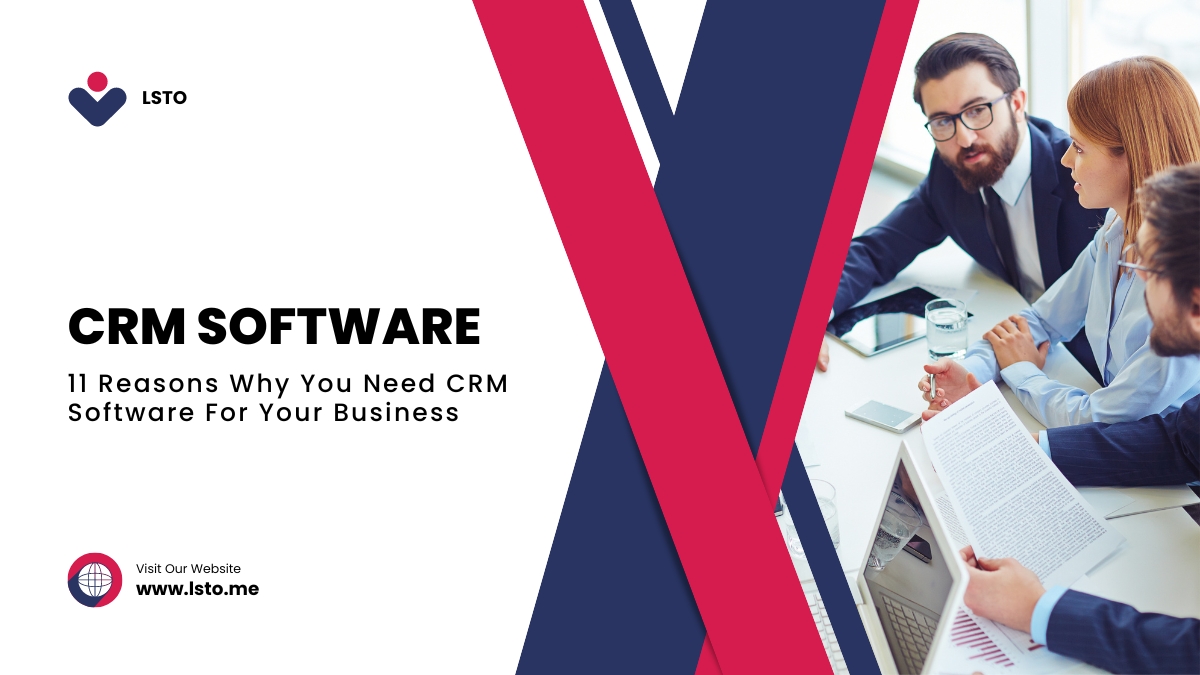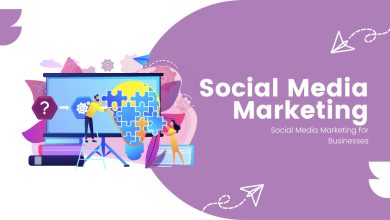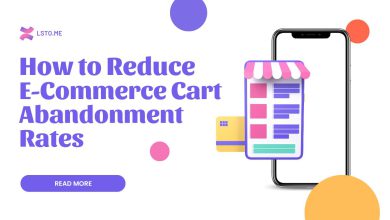
Businesses of all sizes, from small startups to large enterprises, rely on customer relationship management (CRM) software to efficiently manage their client relationships. CRM software is a powerful tool that offers a variety of benefits and can be used to help businesses succeed. In this article, we will discuss 11 reasons why you need CRM software for your business.
1. CRM Helps Your Business Grow
In today’s digital world, customer relationship management (CRM) software has become an essential tool for businesses. This type of software allows companies to keep a record of their customers and provide them with the best possible service. With CRM software, businesses can streamline their operations and ensure that all customer interactions are tracked and monitored correctly.
CRM software allows businesses to easily identify potential growth opportunities. By using this type of software, companies can analyze customer data to gain insight into their preferences, buying patterns, and interests. With this information in hand, businesses can create better marketing campaigns tailored specifically to these target customers. Additionally, by tracking customer interactions over time with features such as lead scoring or segmentation analysis, companies can make informed decisions on how best to approach each customer interaction – leading to increased sales conversions and overall growth.
2. CRM Increases Business Agility
CRM software has become increasingly popular in the business world as a foundational tool for managing customer relationships. This technology helps organizations to quickly and easily track customer data, streamline processes, and increase agility across the organization. With CRM software, businesses can create an agile environment where teams can collaborate more effectively; enabling them to rapidly respond to changes in the market or industry.
CRM software provides numerous benefits that contribute to increased agility such as improved customer service capabilities, better access to critical information, enhanced visibility into sales pipelines and trends, automated reporting and analytics capabilities, cost savings from eliminating manual processes, greater efficiency with lead nurturing campaigns, and unified communication platforms. Furthermore, organizations can use their CRM system to segment customers based on key criteria for targeted marketing campaigns which further increases business agility.
3. CRM Organizes Your Business
CRM software is a must-have for any business that values efficient customer management. It allows businesses to organize and manage their customers, leads, sales, and marketing activities in one place. With the right CRM system, you can streamline your operations and improve customer satisfaction.
CRM software provides an all-in-one solution for managing customer data and relationships. It enables businesses to track leads through the entire sales process from initial contact to purchase. This helps identify which strategies are most effective at converting prospects into customers. In addition, CRM systems allow companies to segment their customers by type or industry offering a more targeted approach when it comes to marketing campaigns and promotions.
Lastly, with the help of CRM tools such as analytics software, businesses can access valuable insights into their customer base allowing them to make better-informed decisions for future growth strategies.
4. CRM Automates Campaigns
CRM software is a powerful tool for automated campaigns. It provides companies with the ability to streamline processes, increase efficiency, and reduce costs. With CRM software, businesses can manage customer data, automate data-driven campaigns, and monitor results in real-time.
CRM automation allows businesses to easily store customer information such as contact details and purchase history. This enables them to create highly targeted campaigns that are tailored to their customers’ needs. Companies can also take advantage of automated email marketing tools that help them send personalized content at the right time. In addition, CRM automation makes it simple to track campaign performance and make necessary adjustments to optimize its success.
Overall, CRM automation is an invaluable asset for companies looking to maximize their ROI from marketing efforts and drive more sales.
5. CRM Increases Data Efficiency And Accuracy
As businesses become increasingly reliant on technology and data to drive their operations, the need for efficient and accurate customer relationship management (CRM) software has grown exponentially. CRM software is designed to help businesses manage their customers’ information more efficiently, accurately, and securely. By automating tasks such as tracking customer activity, managing leads, and evaluating customer feedback, CRM software can improve the accuracy of data collection and analysis.
In addition to improving the accuracy of operations through better data organization, CRM software also helps businesses increase their efficiency by reducing manual labor. By streamlining processes like contact management or sales follow-up tasks with automated systems that can be updated quickly with new customer information as it becomes available, businesses can focus more energy on higher-value activities that directly result in growth opportunities.
6. Higher Quality Leads
In the current business environment, CRM software has become an essential tool for businesses that are looking to attract higher-quality leads. CRM software allows organizations to better manage customer relationships and identify the best prospects for their product or service. By strategically targeting potential customers and engaging in meaningful conversations with them, businesses can develop a more personalized approach which ultimately leads to increased sales opportunities.
CRM software provides companies with real-time insights into customer behavior, allowing them to monitor trends in customer purchasing patterns and adjust marketing strategies accordingly. Companies can also use this data to prioritize leads, saving time and resources by focusing on those customers most likely to convert into paying clients. Additionally, advanced analytics capabilities help marketers gain deeper insights into their target audience so they can create more effective campaigns and optimize their lead-generation efforts.
7. CRM Keeps Your Team On The Same Page
For any business team that needs to stay on the same page, Customer Relationship Management (CRM) software can be a great asset. CRM is a technology that helps businesses manage customers and related data in an organized way, allowing teams to collaborate more efficiently. It also provides an easy way to store customer information and track interactions with potential or existing clients.
CRM software offers numerous benefits for teams who need to stay organized and informed. For instance, it allows everyone on the team to access customer data from anywhere at any time. This feature keeps all members of the team up-to-date on customer communications and transactions, so nothing gets lost in the shuffle. Additionally, CRM systems are designed to allow users to create automated workflows, which ensures tasks and processes run smoothly without manual intervention.
8. Contact Segmentation
Contact segmentation is a powerful tool within CRM software that helps businesses better manage their customer relationships. By dividing contacts into distinct segments, companies can quickly and easily identify the needs of each group and tailor their marketing efforts accordingly. As a result, contact segmentation leads to an improved customer experience and more informed decisions about how best to reach potential customers.
The greatest advantage of using contact segmentation is the ability to target specific customer groups for tailored marketing messages. For example, by analyzing past purchasing behavior or age demographics, businesses can separate groups that may have different interests or preferences when it comes to products or services. This allows them to craft messaging that speaks directly to these individuals to engage them more effectively than with a one-size-fits-all approach.
9. Improves Visibility
CRM software has changed the way businesses communicate with customers, making it easier to understand customer needs and preferences. It also helps business owners improve their visibility in the marketplace. By leveraging CRM software, companies can access valuable customer insights and build strong relationships with customers that lead to increased sales and loyalty.
CRM software provides businesses with an easy-to-use platform to store customer data, enabling them to better understand their customers’ wants and needs. With this information, businesses can create more targeted campaigns that attract a larger audience and generate higher levels of engagement. Additionally, CRM software allows companies to track customer activity over time so they can adjust strategies accordingly and stay ahead of their competition.
With CRM software, businesses have a powerful tool at their disposal that enables them to gain greater visibility in the market by connecting with existing customers as well as potential ones.
10. Better Data For Improved Reporting
Data is key to any successful business. Without accurate data, reporting and decision-making can quickly become unreliable and inefficient. However, with the right tools in place that can be prevented. CRM software is a great way for businesses to manage their customer data and improve data accuracy for better reporting.
CRM software allows users to collect the right data at the right time by providing detailed records of customers such as their purchase history, preferences, contact information, and more. This makes it easier to identify trends in purchasing behavior or uncover insights into customer satisfaction levels that can help shape better strategies for success. The software also keeps all this information organized and up-to-date which helps provide more timely reports that are reliable and actionable.
Overall, CRM software is an invaluable tool when it comes to improving data accuracy for reporting purposes.
11. Administrative Support
Administrative Support is an integral part of any business, providing services that keep daily operations running smoothly. It encompasses a range of tasks from filing paperwork to managing customer relations. In today’s digital age, administrative support has evolved to utilize cutting-edge technology such as CRM software to improve efficiency and productivity.
CRM software is designed for managing customer relationships by streamlining communication and tracking customer data. This type of software provides businesses with greater insight into their customers’ needs, helping them deliver better service and develop long-term relationships. Additionally, it simplifies the administrative process by automating tasks such as data entry and report generation, freeing up valuable resources for more important tasks. By utilizing CRM software in their administrative support processes, businesses can ensure they are operating at maximum efficiency in all areas.




